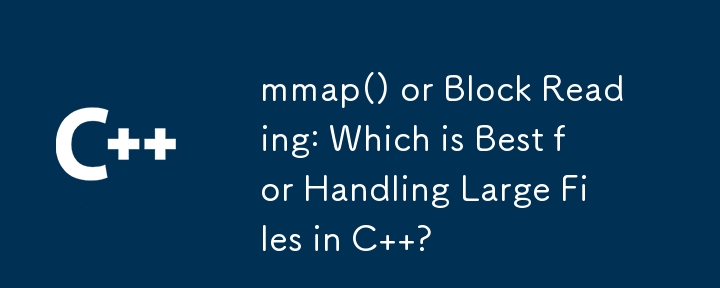

mmap() vs. Block Reading
When handling large files, such as those over 100GB, optimizing I/O performance is crucial. Two options for accessing files in C are mmap() and reading in blocks using fstream. Deciding between these methods can impact performance significantly.
mmap()
mmap() maps a file into memory, allowing the program to access its contents as if they were located in the virtual memory space. This method is typically used for random access patterns and when large portions of the file are accessed for prolonged periods.
Block Reading
fstream allows reading files in blocks of data. This approach is simpler but may result in slower performance compared to mmap(), especially for random access patterns. However, it offers more flexibility in handling file boundaries.
Choosing Between mmap() and Block Reading
Several factors can influence the decision between mmap() and block reading:
Random vs. Sequential Access: mmap() is more efficient for random access patterns, allowing quick retrieval of specific data locations.
Cache Utilization: mmap() allows caching of file pages, improving performance when accessing repeated data. However, block reading can also utilize the system disk cache for sequential access.
Performance Overhead: mmap() incurs more overhead during initialization and memory management compared to block reading. For small files or limited access, block reading may be more suitable.
Data Sharing: mmap() allows multiple processes to share file mappings, providing a way to reduce memory consumption and enhance inter-process communication.
Ease of Implementation: Block reading using fstream is relatively straightforward compared to mmap(), which involves managing virtual memory mappings.
The above is the detailed content of mmap() or Block Reading: Which is Best for Handling Large Files in C ?. For more information, please follow other related articles on the PHP Chinese website!




